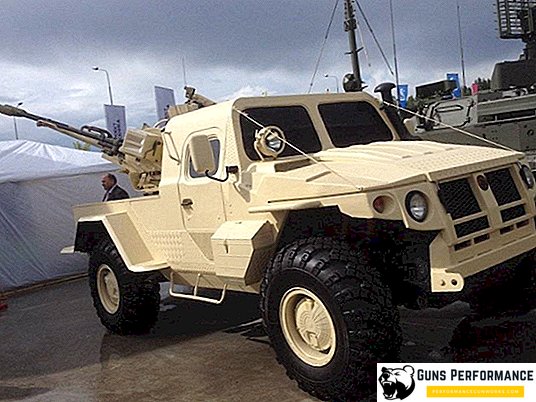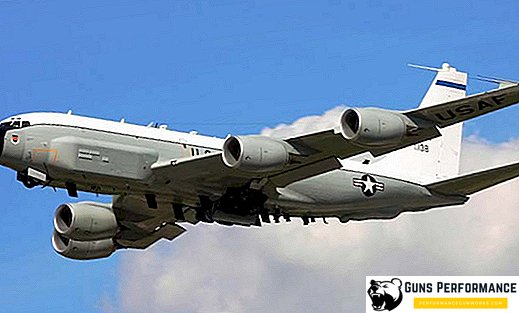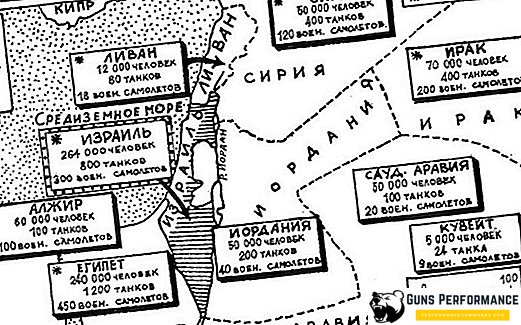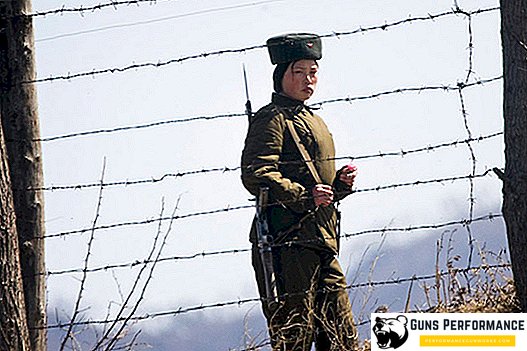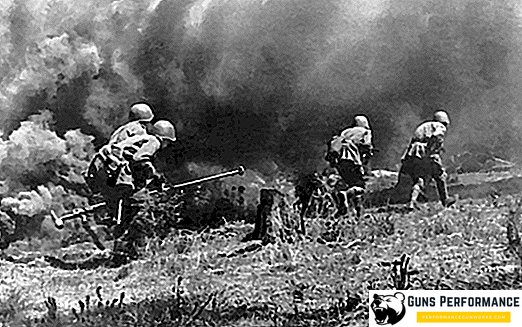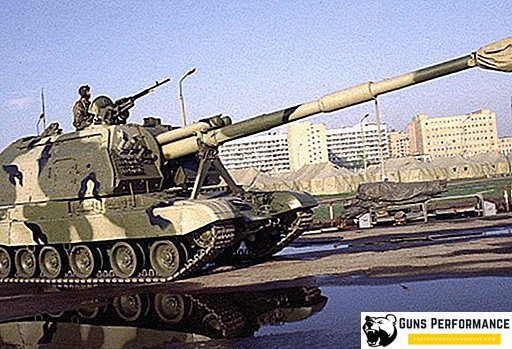The war is incredible,
the world is impossible.
Raymond Aron
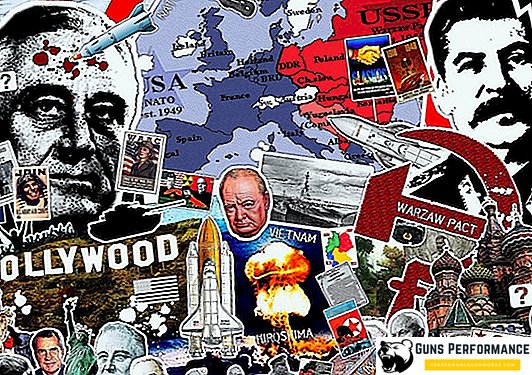
Modern relations of Russia with the collective West can hardly be called constructive or all the more partnership. Reciprocal accusations, loud statements, the increasing saber-rattling of weapons and the furious intensity of propaganda - all this creates a lasting impression of deja vu. All this once was and is repeated now - but in the form of a farce. Today, the news feed seems to return to the past, in times of epic confrontation between two powerful superpowers: the USSR and the USA, which lasted more than half a century and repeatedly brought humanity to the brink of a global military conflict. In history, this multi-year confrontation has been called the Cold War. Its beginning is considered by historians to be the famous speech of the British Prime Minister (at that time already former) Churchill, delivered in Fulton in March 1946.
The era of the Cold War lasted from 1946 to 1989 and ended with the current Russian President Putin called "the biggest geopolitical catastrophe of the XX century" - the Soviet Union disappeared from the world map, and with it the whole communist system disappeared. The confrontation of the two systems was not a war in the direct sense of the word, the apparent clash between the armed forces of the two superpowers was avoided, but the numerous military conflicts of the Cold War, which it gave rise to in different regions of the planet, took millions of lives.
During the Cold War, the struggle between the USSR and the USA was fought not only in the military or political sphere. Competition in economic, scientific, cultural and other fields was no less acute. But the main one was nevertheless ideology: the essence of the Cold War is the sharpest opposition between two models of the state system: the communist and the capitalist.

By the way, the term "cold war" was introduced by the cult writer of the 20th century, George Orwell. He used it before the very beginning of the confrontation in his article “You and the atomic bomb”. The article was released in 1945. In his youth, Orwell himself was an ardent supporter of the communist ideology, but in his mature years he was completely disillusioned with it, therefore, probably, he understood the question better than many. Officially, the term "cold war" was first used by Americans two years later.
Not only the Soviet Union and the United States took part in the Cold War. It was a global competition involving dozens of countries around the world. Some of them were the closest allies (or satellites) of the superpowers, while others were accidentally involved in the confrontation, sometimes even against their will. The logic of the processes required the parties to the conflict to create their own zones of influence in different regions of the world. Sometimes they were consolidated with the help of military-political blocs, NATO and the Warsaw Pact became the main unions of the Cold War. On their periphery, in the redistribution of spheres of influence, the main military conflicts of the Cold War took place.

The described historical period is inextricably linked with the creation and development of nuclear weapons. For the most part, it was precisely the presence of this powerful deterrent among the opponents that prevented the conflict from entering a hot phase. The cold war between the USSR and the USA gave rise to an unprecedented arms race: as early as the 1970s, opponents had so many nuclear warheads that they would have been enough to destroy the entire globe several times. And that's not counting the huge arsenals of conventional weapons.
For decades, the confrontations were both periods of normalization of relations between the US and the USSR (detente), and times of tough confrontation. The crises of the Cold War brought the world to the brink of global catastrophe several times. The most famous of these is the Caribbean crisis, which occurred in 1962.
The end of the Cold War was swift and unexpected for many. The Soviet Union lost the economic race with the countries of the West. The lag was noticeable already in the late 60s, and by the 80s the situation became catastrophic. A powerful blow to the national economy of the USSR was dealt by a drop in oil prices.

In the mid-80s, it became clear to the Soviet leadership that something must be changed immediately in the country, otherwise a catastrophe would occur. The end of the Cold War and the arms race were vital for the USSR. But perestroika, started by Gorbachev, led to the dismantling of the entire state structure of the USSR, and then to the disintegration of the socialist state. Moreover, the United States, it seems, did not even expect such an outcome: as early as 1990, American expert Sovietologists prepared for their leadership a forecast of the development of the Soviet economy until the year 2000.
At the end of 1989, Gorbachev and Bush officially announced at the time of the summit on the island of Malta that the world cold war was over.
The topic of the Cold War today is very popular in the Russian media. Speaking about the current foreign policy crisis, commentators often use the term "new cold war." Is it so? What is the similarity and difference between the current situation and the events of forty years ago?
Cold War: Causes and Prerequisites
The end of the Second World War gave the world a new geopolitical reality. And she didn't look soothing. It was obvious that the beginning of a new conflict, now between the former allies in the anti-Hitler coalition, is a matter of time.

After the war, the Soviet Union and Germany lay in ruins, and in the course of hostilities, Eastern Europe was heavily inherited. The economy of the Old World was in decline.
On the contrary, the territory of the United States practically did not suffer during the war, and the human losses of the United States could not be compared with the Soviet Union or Eastern European countries. Even before the start of the war, the United States had become the leading global industrial power of the world, and military supplies to the allies had further strengthened the American economy. By 1945, America managed to create a new weapon of unprecedented power - the nuclear bomb. All of the above allowed the United States to confidently count on the role of the new hegemon in the post-war world. However, it soon became clear that on the way to planetary leadership, the United States had a new dangerous rival - the Soviet Union.
The USSR almost single-handedly defeated the strongest German land army, but paid a huge price for it - millions of Soviet citizens died at the front or in the occupation, tens of thousands of cities and villages lay in ruins. Despite this, the Red Army occupied the entire territory of Eastern Europe, including most of Germany. In 1945, the USSR undoubtedly had the strongest armed forces on the European continent. The positions of the Soviet Union in Asia were no less strong. Literally several years after the end of World War II, Communists came to power in China, which made this huge country an ally of the USSR in the region.
The communist leadership of the USSR never abandoned plans for further expansion and the spread of its ideology to new regions of the planet. It can be said that throughout practically all of its history, the USSR’s foreign policy was rather tough and aggressive. In 1945, particularly favorable conditions emerged for the advancement of communist ideology to new countries.
It should be understood that the Soviet Union was poorly understood by most American, and indeed Western politicians. The country, where there is no private property and market relations, blows up churches, and the society is under the complete control of the special services and the party, it seemed to them a kind of parallel reality. Even Hitler's Germany was in something more understandable to ordinary Americans. On the whole, Western politicians were rather negative about the USSR even before the start of the war, and after its completion, fear was added to this attitude.
In 1945, the Yalta Conference was held, during which Stalin, Churchill and Roosevelt tried to divide the world into spheres of influence and create new rules for the future world order. Many modern scholars see the origins of the Cold War in this conference.

Summarizing the above, one can say: the cold war between the USSR and the USA was inevitable. These countries were too different to coexist peacefully. The Soviet Union wanted to expand the socialist camp by including new states in it, and the United States sought to rebuild the world in order to create more favorable conditions for its large corporations. Nevertheless, the main causes of the Cold War are still in the field of ideology.
The first signs of a future cold war appeared even before the final victory over Nazism. In the spring of 1945, the USSR made territorial claims against Turkey and demanded to change the status of the Black Sea straits. Stalin was interested in the possibility of creating a naval base in the Dardanelles.
A little later (in April 1945), British Prime Minister Churchill gave instructions to prepare plans for a possible war with the Soviet Union. He later wrote about this himself in his memoirs. At the end of the war, the British and Americans kept several unarmed Wehrmacht divisions in case of conflict with the USSR.

In March 1946, Churchill delivered his famous speech in Fulton, which many historians consider to be the trigger for the Cold War. In this speech, the politician urged Britain to strengthen relations with the United States in order to jointly repel the expansion of the Soviet Union. Churchill saw the dangerous growth of the influence of the communist parties in the states of Europe. He urged not to repeat the mistakes of the 30s and not to be led by the aggressor, but to firmly and consistently defend Western values.
"... From Stettin on the Baltic to Trieste on the Adriatic, the Iron Curtain was lowered across the continent. Behind this line are all the capitals of the ancient states of Central and Eastern Europe. (...) The Communist Parties, which were very small in all Eastern European countries, have seized power everywhere and gained unlimited totalitarian control. (...) Police governments prevail almost everywhere, and so far there is no true democracy anywhere except Czechoslovakia. The facts are as follows: this, of course, is not that liberated . Th Europe, for which we have fought This is not what is needed to keep the world ... "- describes a new post-war reality in Europe, Churchill - by far the most experienced and astute politician of the West. In the USSR, this speech was not very much liked; Stalin compared Churchill with Hitler and accused him of fomenting a new war.
It should be understood that during this period, the front of the confrontation of the Cold War often ran not inside the external borders of countries, but inside them. The poverty of Europeans ravaged by war made them more susceptible to leftist ideology. After the war in Italy and France, the Communists were supported by about a third of the population. The Soviet Union, in turn, did everything possible to support the national communist parties.

In 1946, the Greek rebels, led by the local communists, became more active and supplied the Soviet Union with arms through Bulgaria, Albania and Yugoslavia. Suppress the uprising was only possible by 1949. After the end of the war, the USSR for a long time refused to withdraw its troops from Iran and demanded to give it the right to a protectorate over Libya.
In 1947, the Americans developed a so-called Marshall Plan, which provided for substantial financial assistance to the states of Central and Western Europe. This program includes 17 countries, the total amount of transfers amounted to 17 billion dollars. In exchange for the money, the Americans demanded political concessions: the recipient countries had to exclude the Communists from their governments. Naturally, neither the USSR nor the countries of the "people's democracies" of Eastern Europe received any help.
One of the real “architects” of the Cold War is the deputy American ambassador to the USSR, George Kennan, who sent a telegram number 511 to his homeland in February 1946. She went down in history as the “Long Telegram”. In this document, the diplomat acknowledged the impossibility of cooperation with the USSR and called on his government to firmly oppose the Communists, because, according to Kennan, the leadership of the Soviet Union respects only force. Later this document largely determined the position of the United States in relation to the Soviet Union for many decades.
In the same year, President Truman announced the "containment policy" of the USSR throughout the world, later it was called the "Truman Doctrine".

In 1949, the largest military-political bloc was formed - the North Atlantic Treaty Organization, or NATO. It includes most of the countries of Western Europe, Canada and the United States. The main objective of the new structure was to protect Europe from the Soviet invasion. In 1955, the communist countries of Eastern Europe and the USSR created their own military alliance, called the Warsaw Pact Organization.
Stages of the Cold War

The following stages of the Cold War are distinguished:
- 1946 - 1953. The initial stage, the start of which is usually considered Churchill's speech in Fulton. During this period, the Marshall Plan for Europe is launched, the North Atlantic Alliance and the Warsaw Pact Organization are being created, that is, the main participants of the Cold War are determined. At this time, the efforts of the Soviet intelligence and military-industrial complex were aimed at creating their own nuclear weapons, in August 1949, the USSR tested its first nuclear bomb. But the United States still retained a significant superiority both in terms of the number of charges and in the number of carriers. In 1950, the war began on the Korean Peninsula, which lasted until 1953 and became one of the bloodiest military conflicts of the last century;
- 1953 - 1962 This is a very controversial period of the Cold War, during which the Khrushchev "thaw" and the Caribbean crisis, which almost ended in a nuclear war between the United States and the Soviet Union, happened. Anti-communist uprisings in Hungary and Poland, another Berlin crisis and war in the Middle East took place in those years. In 1957, the USSR successfully tested the first intercontinental ballistic missile capable of reaching the United States. In 1961, the USSR conducted demonstrative tests of the most powerful thermonuclear charge in the history of mankind - the “Tsar-bomb”. The Caribbean crisis led to the signing of several documents on non-proliferation of nuclear weapons between superpowers;
- 1962 - 1979 This period can be called the apogee of the Cold War. The arms race reaches maximum intensity, tens of billions of dollars are spent on it, undermining the economy of rivals. Attempts by the Czechoslovak government to carry out pro-Western reforms in the country were stopped in 1968 by the entry into its territory of the troops of the Warsaw Pact members. The tension between the two countries, of course, was present, but the Soviet Secretary General Brezhnev was not a fan of adventures, so it was possible to avoid acute crises. Moreover, in the early 1970s, the so-called “defusing international tensions” began, which somewhat reduced the intensity of the confrontation. Important documents on nuclear weapons were signed, joint programs in space were implemented (the famous "Apollo-Soyuz"). In the Cold War, it was an extraordinary event. However, the "detente" ended by the mid-70s, when the Americans deployed medium-range nuclear missiles in Europe. The USSR responded by deploying similar weapon systems. By the mid-1970s, the Soviet economy began to stall noticeably, the USSR was lagging behind in the scientific and technical sphere;
- 1979 - 1987 Relations between the superpowers deteriorated again after Soviet troops entered Afghanistan. In response, the Americans boycotted the Olympics, which the Soviet Union hosted in 1980, and began to help the Afghan mujahideen. In 1981, the White House was joined by a new American president - Republican Ronald Reagan, who became the most tough and consistent opponent of the USSR. It was with his submission that the Strategic Defense Initiative (SDI) program began, which was supposed to protect US territory from the Soviet warheads. During the Reagan years, the United States began to develop neutron weapons, and allocations for military needs increased significantly. In one of his speeches, the American president called the USSR an "evil empire";
- 1987 - 1991 This stage is the end of the Cold War. A new general secretary, Mikhail Gorbachev, came to power in the USSR. He began global changes within the country, radically revised the state’s foreign policy. Began another discharge. The main problem of the Soviet Union was the state of the economy, undermined by military spending and low energy prices - the main export product of the state. Теперь СССР уже не мог позволить себе вести внешнюю политику в духе холодной войны, ему нужны были западные кредиты. Буквально за несколько лет накал конфронтации между СССР и США практически сошел на нет. Были подписаны важные документы, касающиеся сокращения ядерных и обычных вооружений. В 1988 году начался вывод советских войск из Афганистана. В 1989 году один за другим начались "сыпаться" просоветские режимы в Восточной Европе, а в конце этого же года была разбита Берлинская стена. Многие историки считают именно это событие настоящим концом эпохи холодной войны.
Почему СССР проиграл в Холодной войне?
Несмотря на то, что с каждым годом события холодной войны все дальше от нас, темы, связанные с этим периодом, вызывают возрастающий интерес в российском обществе. Отечественная пропаганда нежно и заботливо пестует ностальгию части населения по тем временам, когда "колбаса была по два - двадцать и нас все боялись". Такую, мол, страну развалили!

Почему же Советский Союз, располагая огромными ресурсами, имея весьма высокий уровень социального развития и высочайший научный потенциал, проиграл свою главную войну - Холодную?
СССР появился в результате невиданного ранее социального эксперимента по созданию в отдельно взятой стране справедливого общества. Подобные идеи появлялись в разные исторические периоды, но обычно так и оставались прожектами. Большевикам следует отдать должное: им впервые удалось воплотить в жизнь этот утопический замысел на территории Российской империи. Социализм имеет шансы занять свое месть как справедливая система общественного устройства (социалистические практики все явственнее проступают в социальной жизни скандинавских стран, например) - но это было неосуществимо в то время, когда эту общественную систему пытались внедрить революционным, принудительным путем. Можно сказать, что социализм в России опередил свое время. Едва ли он стал таким уж ужасным и бесчеловечным строем, особенно в сравнении с капиталистическим. И уж тем более уместно вспомнить, что исторически именно западноевропейские «прогрессивные» империи стали причиной страданий и гибели самого большого количества людей по всему миру - России далеко в этом отношении, в частности, до Великобритании (наверно, именно она и является подлинной «империей зла», орудием геноцида для Ирландии, народов американского континента, Индии, Китая и много кого еще). Возвращаясь к социалистическому эксперименту в Российской империи начала 20 века, следует признать: народам, проживающим в ней, это стоило неисчислимых жертв и страданий на протяжении всего столетия. Немецкому канцлеру Бисмарку приписывают такие слова: "Если вы хотите построить социализм, возьмите страну, которую вам не жалко". К сожалению, не жалко оказалось Россию. Тем не менее, никто не имеет право обвинять Россию в ее пути, особенно учитывая внешнеполитическую практику прошлого 20 века в целом.
Проблема только в том, что при социализме советского образца и общем уровне производительных сил 20 века экономика работать не хочет. От слова совсем. Человек, лишенный материальной заинтересованности в результатах своего труда, работает плохо. Причем на всех уровнях, начиная от обычного рабочего и заканчивая высоким чиновником. Советский Союз - имея Украину, Кубань, Дон и Казахстан - уже в середине 60-х годов был вынужден закупать зерно за границей. Уже тогда ситуация с обеспечением продовольствием в СССР была катастрофической. Тогда социалистическое государство спасло чудо - обнаружение "большой" нефти в Западной Сибири и подъем мировых цен на это сырье. Некоторые экономисты считают, что без этой нефти развал СССР случился бы уже в конце 70-х годов.

Говоря о причинах поражения Советского Союза в холодной войне, конечно же, не следует забывать и об идеологии. СССР изначально создавался, как государство с абсолютно новой идеологией, и долгие годы она его была мощнейшим оружием. В 50-е и 60-е годы многие государства (особенно в Азии и Африке) добровольно выбирали социалистический тип развития. Верили в строительство коммунизма и советские граждане. Однако в уже в 70-е годы стало понятно, что строительство коммунизма - это утопия, которая на то время не может быть осуществлена. Более того, в подобные идеи перестали верить даже многие представители советской номенклатурной элиты - главные будущие выгодоприобретатели распада СССР.
Но при этом следует отметить, что в наши дни многие западные интеллектуалы признают: именно противостояние с «отсталым» советским строем заставляло капиталистические системы мимикрировать, принимать невыгодные для себя социальные нормы, которые первоначально появились в СССР (8-часовой рабочий день, равные права женщин, всевозможные социальные льготы и многое другое). Не лишним будет повторить: скорее всего, время социализма пока еще не наступило, поскольку для этого нет цивилизационной базы и соответствующего уровня развития производства в глобальной экономике. Либеральный капитализм - отнюдь не панацея от мировых кризисов и самоубийственных глобальных войн, а скорее наоборот, неизбежный путь к ним.
Проигрыш СССР в холодной войне был обусловлен не столько мощью его противников (хотя, и она была, безусловно, велика), сколько неразрешимыми противоречиями, заложенными внутри самой советской системы. Но в современном мироустройстве внутренних противоречий меньше не стало, и уж точно не прибавилось безопасности и покоя.
Итоги Холодной войны
Конечно, главным положительным итогом холодной войны является то, что она не переросла в войну горячую. Несмотря на все противоречия между государствами, у сторон хватило ума осознать, на каком краю они находятся, и не переступить роковую черту.
Однако и другие последствия холодной войны трудно переоценить. По сути, сегодня мы живем в мире, который во многом был сформирован в тот исторический период. Именно во времена холодной войны появилась существующая сегодня система международных отношений. И она худо-бедно, но работает. Кроме того, не следует забывать, что значительная часть мировой элиты была сформирована еще в годы противостояния США и СССР. Можно сказать, что они родом из холодной войны.
Холодная война оказывала влияние практически на все международные процессы, которые происходили в этот период. Возникали новые государства, начинались войны, вспыхивали восстания и революции. Многие страны Азии, Африки получили независимость или избавились от колониального ига благодаря поддержке одной из сверхдержав, которые стремились таким образом расширить собственную зону влияния. Еще и сегодня существуют страны, которые можно смело назвать "реликтами Холодной войны" - например, Куба или Северная Корея.

Нельзя не отметить тот факт, что холодная война способствовала развитию технологий. Противостояние супердержав дало мощный толчок изучению космического пространства, без него неизвестно, состоялась бы высадка на Луну или нет. Гонка вооружений способствовала развитию ракетных и информационных технологий, математики, физики, медицины и многого другого.
Если говорить о политических итогах этого исторического периода, то главным из них, без сомнения, является распад Советского Союза и крушение всего социалистического лагеря. В результате этих процессов на политической карте мира появилось около двух десятков новых государств. России в наследство от СССР досталось весь ядерный арсенал, большая часть обычных вооружений, а также место в Совбезе ООН. А США в результате холодной войны значительно усилили свое могущество и сегодня, по факту, являются единственной супердержавой.

Окончание Холодной войны привело к двум десятилетиям бурного роста мировой экономики. Огромные территории бывшего СССР, прежде закрытые "железным занавесом", стали частью глобального рынка. Резко снизились военные расходы, освободившиеся средства были направлены на инвестиции.
Однако главным итогом глобального противостояния между СССР и Западом стало наглядное доказательство утопичности социалистической модели государства в условиях общественного развития конца 20 века. Сегодня в России (и других бывших советских республиках) не утихают споры о советском этапе в истории страны. Кто-то видит в нем благо, другие называют величайшей катастрофой. Должно родиться хотя бы еще одно поколение, чтобы на события холодной войны (как и на весь советский период) стали смотреть, как на исторический факт - спокойно и без эмоций. Коммунистический эксперимент - это, конечно же, важнейший опыт для человеческой цивилизации, который до сих пор не "отрефлексирован". И возможно, этот опыт еще принесет России пользу.


